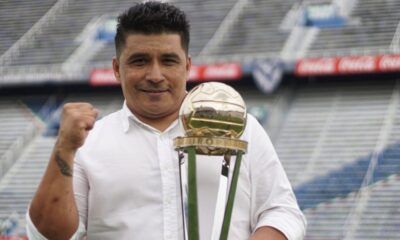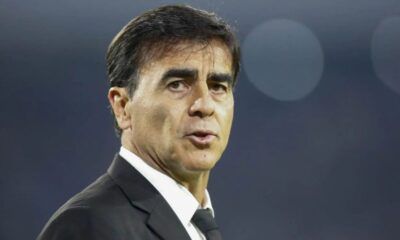INTERNACIONAL
Right surges in Europe: What to know and what it means for US

The success of right-wing parties in the recent European Parliament elections has shocked the continent and countries around the world, indicating a potential bellwether for the upcoming U.S. presidential election.
Voters across the 27 member states that make up the European bloc voted between June 6 and 9, with the results keeping European Commission President Ursula von der Leyen’s center-right European People’s Party (EPP) Group in the majority with 189 of the 720 seats available, but seeing a significant shift from the left to right across the remaining groups.
Here’s what happened, along with the winners and losers of this surprising electoral result.
EUROPE’S VOTING AGENDA
The results in Europe could indicate a continuing global shift to the right during one of the busiest election years on record: Over 50 countries had elections scheduled this year, even before France announced a snap election due to the European Parliament results, according to the Associated Press.
With U.S. politics so tightly poised ahead of the 2024 elections, analysts will look to the other global contests to get some sense as to universal voter sentiments — recalling that the historic and surprise Brexit vote preceded Donald Trump’s own surprise victory over Hillary Clinton in 2016 — particularly as similar issues appear to trouble both Europeans and Americans despite the Atlantic divide.
The successive wins of Geert Wilders’ Party for Freedom (PVV) in the national and European elections, for example, have cemented the Netherlands’ shift to the right. Wilders gave up his bid to become prime minister, but seemingly ensured a PVV-led government that will prove to be the country’s most conservative one in decades.
Leader of the Party for Freedom (PVV) Geert Wilders speaks to the press after a meeting with Speaker of the House at the House of Representatives in The Hague, on November 24, 2023. After his shock election win, far-right Dutch firebrand Geert Wilders on Friday kicked off the formal process of building a government coalition, battling to convince reluctant rivals to serve under him as premier. (Sem van der Wal/ANP/AFP via Getty Images)
«The Greens and Liberals are big losers,» Wilders wrote on social media platform X. «They will lose many seats in the European Parliament. On the other hand, the PVV is winning big, just like our friends in France, Belgium, Austria, Portugal and many other countries. It was a very beautiful election day!»
London-based think tank Chatham House cited immigration as one of the primary issues that right-wing parties have pushed to the forefront of voters’ minds. They also cited «genuine» grievances about healthcare, housing and an ongoing cost of living crisis as issues that voters had on their minds when they went to the polls this month.
Support for Ukraine also remains a key issue, though the think tank warns it is «perhaps the least controversial foreign policy issue,» instead focusing on the question of E.U. membership expansion: Russia’s invasion prompted Finland and Sweden to break decades-long policies of neutrality and to join the union.
HOW DOES THE EUROPEAN PARLIAMENT WORK?
The European Conservatives and Reformists (ECR) gained 21 seats and became the third-biggest European party, and the Rassemblement National (NA) party in France will have 30 seats overall, giving right-wing parties a significant presence in the parliament. Meanwhile, the Progressive Alliance of Socialists and Democrats (S&D), the liberal Renew Europe, Independent and Democracy (ID) and Greens/European Free Alliance (EFA) each lost over a dozen seats.
Much like the U.S. House of Representatives, the number of MEPs depends on the population of their parent country: Austria, for instance, has 20 seats, while Cyprus has only six seats. Germany and France top the count with 96 and 81 seats each, while Italy has 76 seats, Spain has 61, and the Netherlands has 31 seats.
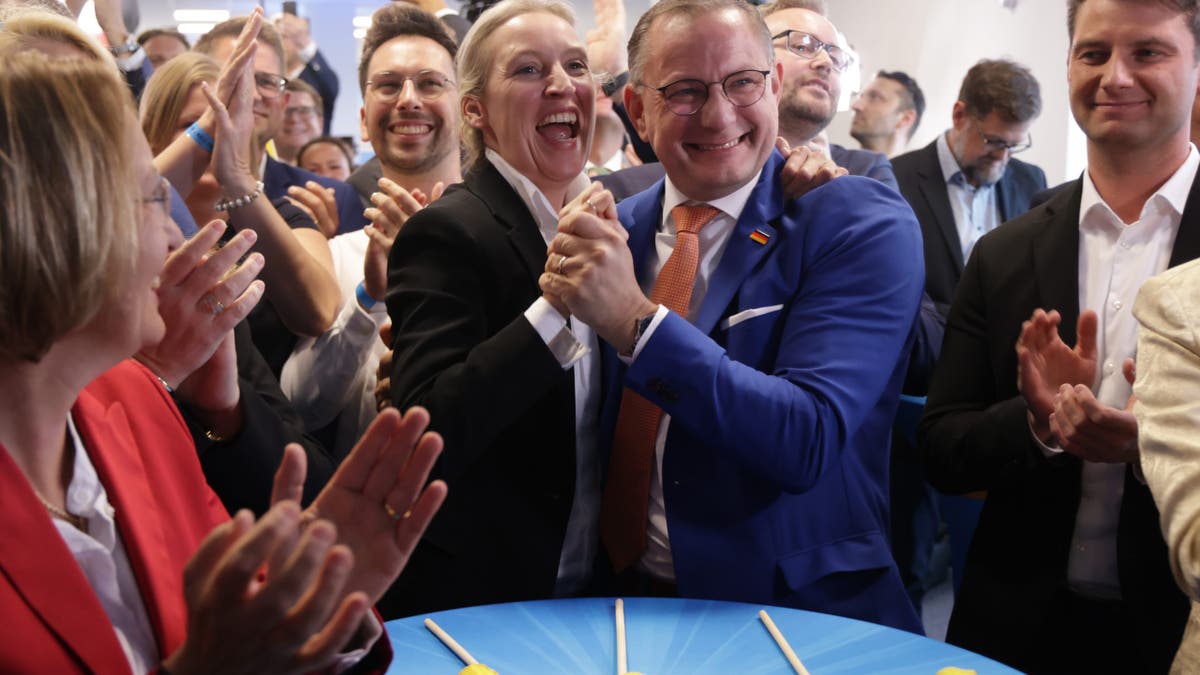
Tino Chrupalla and Alice Weidel, co-leaders of the far-right Alternative for Germany (AfD) political party, celebrate at the AfD election evening gathering following the release of initial election results in European parliamentary elections on June 9, 2024, in Berlin, Germany. Elections to the European Parliament have been taking place since June 6 across European Union member states and are concluding tonight. (Sean Gallup/Getty Images)
The ECR will have 83 seats with by far the biggest gains, though media tried to position the EPP’s gains as a bigger story after the party had lost seats in previous elections. ECR also registered strong numbers in Poland, where it gained 20 seats, as a runner-up to EPP, which indicates the divided nature of politics in many European countries.
National parties in each country take seats and then filter into one of the parliamentary groups, which means that wins from parties such as Germany’s Alternative for Germany (AfD) — which enters the European Parliament for the first time with 15 seats — and Wilders’ PVV, helped bolster ECR’s standing.
A party needs at least 23 MEPs from seven member states to have a presence in the European Parliament, according to Reuters. This means that winning even one seat — especially in countries that have only a handful of MEPs to elect — in some countries often proves a vital step in securing a place at the table.
WHAT DOES A RIGHT-WING WIN MEAN FOR EUROPE?
In Germany, EPP won its most seats, followed by NA and Greens, while France saw ID take command over S&D and Macron’s own party, Renew. Italy gave ECR its biggest win, with S&D the runner-up by only a few seats. Spain gave both EPP and S&D strong support, while the Netherlands virtually provided even support to Renew, EPP and ID each.
Politicians on the left have voiced concerns that ECR’s major success has given the right a significant bargaining chip in future policy discussions, with the ruling EPP likely to engage with them as needed to pass its desired legislation and giving the right wing more of a hand in pushing its own agenda.
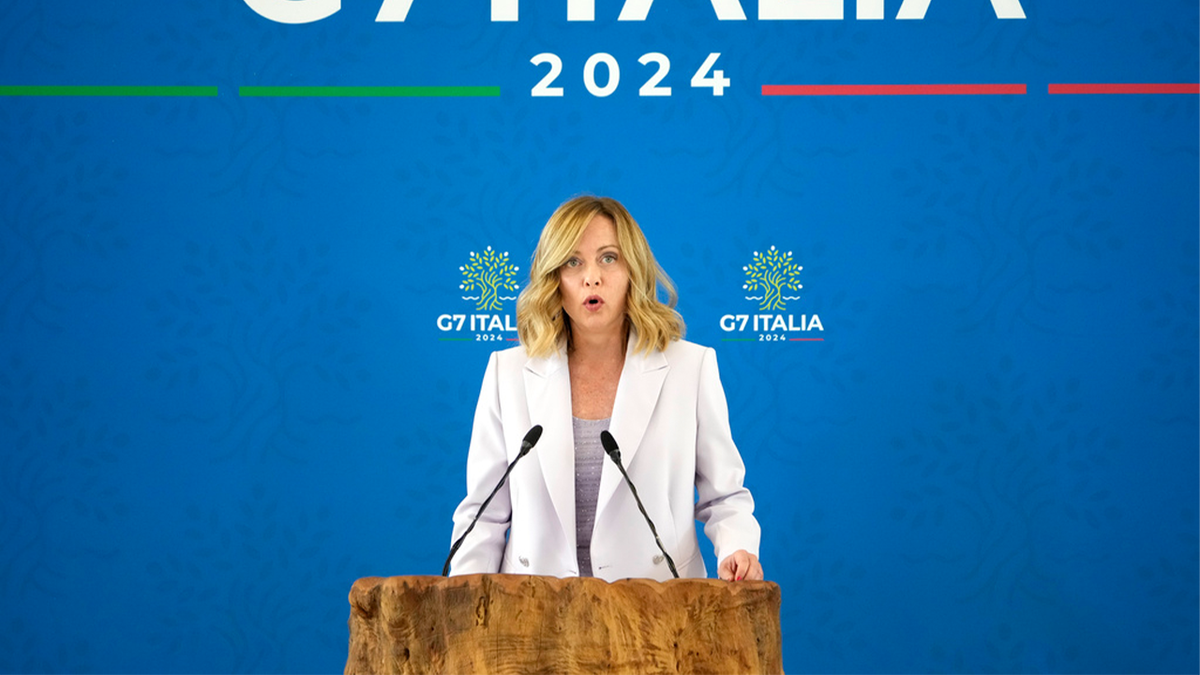
Italian Prime Minister Giorgia Meloni speaks during a final media conference at the G7 in Borgo Egnazia, near Bari in southern Italy, Saturday, June 15, 2024. (AP Photo/Andrew Medichini)
The ECR party is a Eurosceptic party most closely affiliated with the right-wing parties of Italy: Brothers of Italy member Nicola Procaccini has served as chairman of the party since 2019, and the group made its biggest gains in France, Germany and Italy.
The party is also closely associated with Italian Prime Minister Giorgia Meloni, who has found herself as an archrival on the continental stage to French President Emmanuel Macron, who also faces a rising tide of right-wing opposition in his home country as Marine Le Pen and her National Rally party — renamed from National Front in 2018 after nearly five decades — seek gains in an upcoming snap election.
FINDING COMPROMISE?
Macron called a snap election after National Rally took 31.4% of the vote for European Parliament, blowing away any other party, citing a concern that surging support for the party could hinder his remaining term and arguing that an election was the «most responsible solution,» France24 reported.
ECR describes itself as a «constructive center-right force,» according to Politico: The group also counts Czech Prime Minister Petr Fiala’s party as part of its body, as well as Spain’s far-right Vox party. Romania added five new members to the group, proving once again that every win counts.
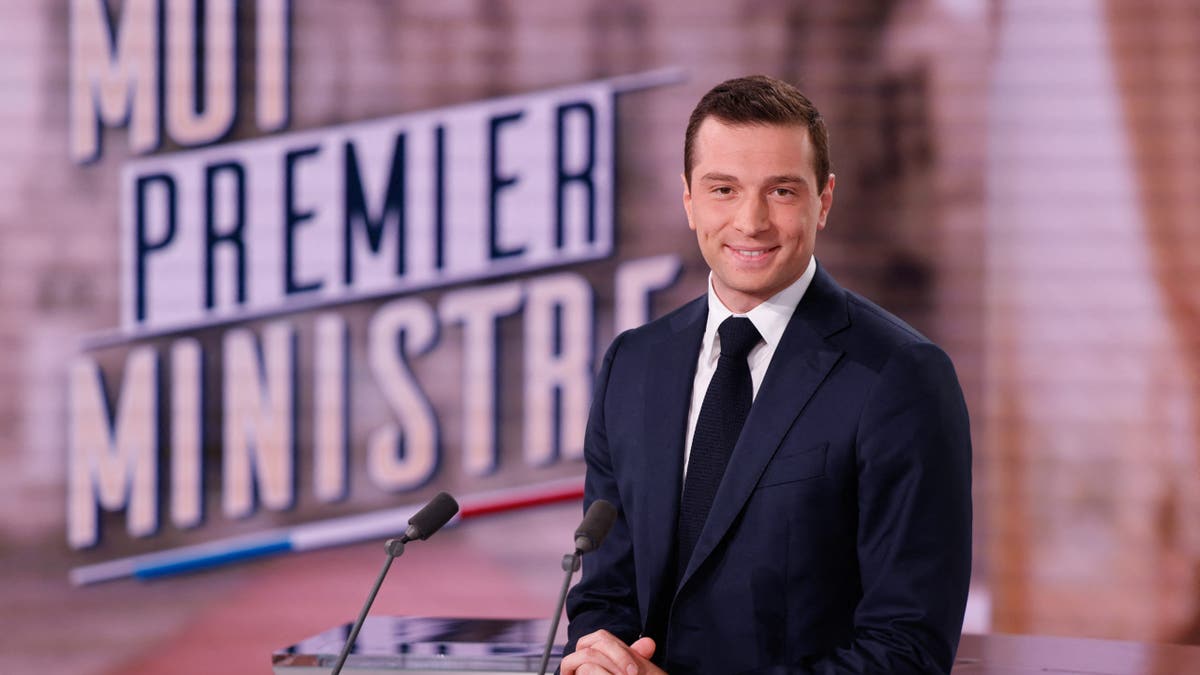
French far-right Rassemblement National (RN) party President and lead MEP Jordan Bardella waits for the start of an interview on the evening news broadcast of French TV channel TF1, in Boulogne-Billancourt, outside Paris, on June 20, 2024. (Ludovic Marin/AFP via Getty Images)
One of the most prominent new faces on the rising right is Jordan Bardella, the president of National Rally, who has served as an MEP since 2019 and has taken a galvanizing role in French politics in the last few years, becoming the party’s «poster boy,» and he now finds himself poised to become prime minister should his party win the French elections set for July. (Note: France has both a President, Macron, who executes national and international policy and a prime minister who guides the parliamentary agenda and domestic policy.)
Bardella has already tried to show a more moderate temperament, turning away from his party’s 2022 promise to prioritize a departure from «the integrated NATO command,» instead insisting that such a move during wartime would «considerably weaken France’s responsibility on the European scene and, obviously, its credibility with regard to its allies.»
Von der Leyen herself hails from Germany’s Christian Democratic Union, the party of former Prime Minister Angela Merkel, but analysts have warned that if she should retain her role as president of the European Commission, she will need to try and balance the demands of both ends of the political spectrum if she wishes to find success.
CLICK TO GET THE FOX NEWS APP
Sandro Gozi, the leading MEP in Renew, told Politico that he doesn’t believe that ECR’s upswing at the expense of his own party will provide any kind of fundamental change to the parliament’s policies and approach, arguing that the «pro-European majority» in the left-wing parties will prove enough to keep things much the same.
The Associated Press and Reuters contributed to this report.
INTERNACIONAL
Recuperado de la cirugía en la cabeza, Lula da Silva inicia su tercer año de mandato con desafíos económicos y un llamado a la unidad

La cirugía
-
INTERNACIONAL2 días ago
Rusia bombardeó Ucrania en la madrugada de Navidad: ataque masivo con misiles al sector energético
-
POLITICA2 días ago
Victoria Villarruel se despegó de la polémica por el aumento de la dieta de los senadores: «Mi sueldo está congelado desde el año pasado»
-
ECONOMIA2 días ago
Otro fallo de la Justicia para que no se aplique el Impuesto a las Ganancias al sueldo
-
POLITICA1 día ago
Marcela Pagano denunciará penalmente a los agentes de tránsito por el escándalo con los diplomáticos rusos
-
POLITICA2 días ago
Nueva amenaza de paro: ATE exige la renovación de 50.000 contratos estatales
-
POLITICA12 horas ago
Otro diputado abandonó Unión por la Patria con críticas a la conducción de Cristina Kirchner: “Liderazgos del pasado”
















